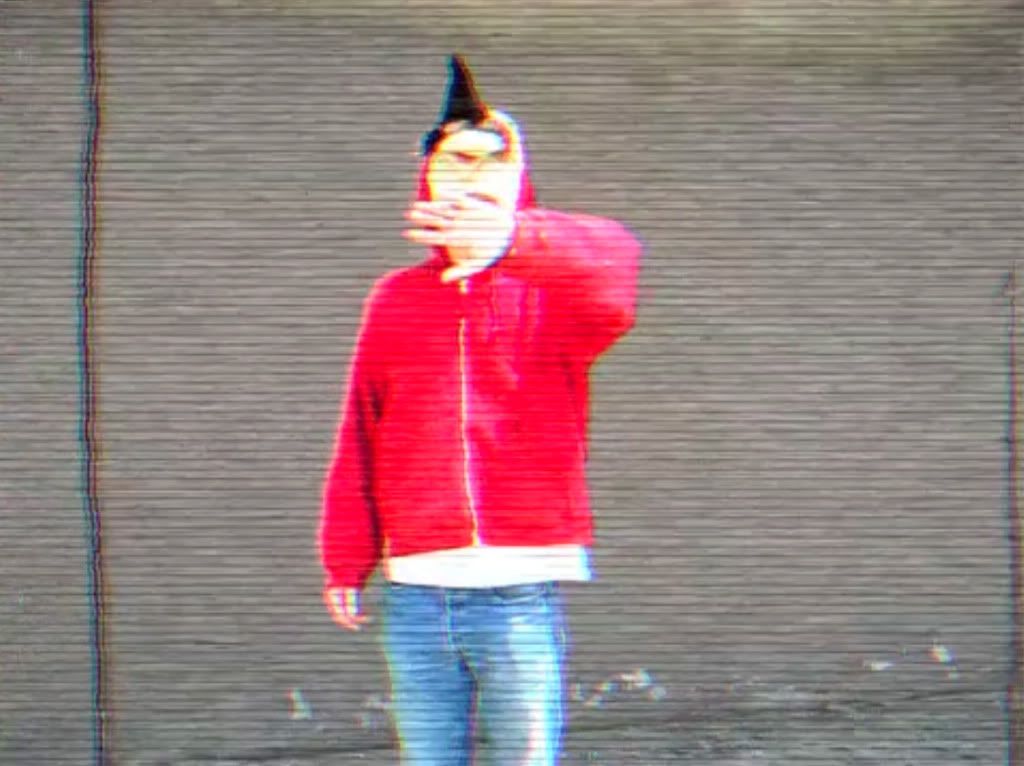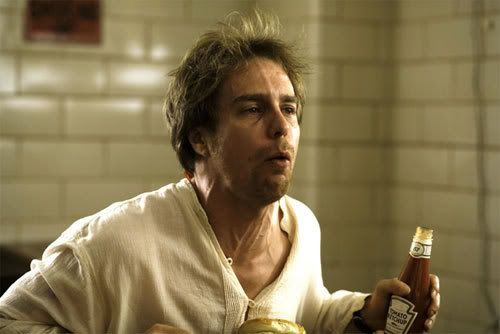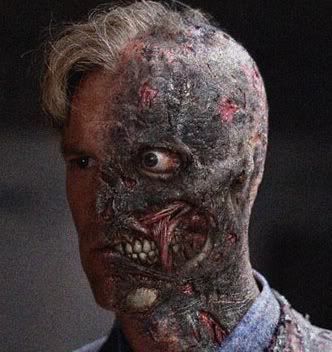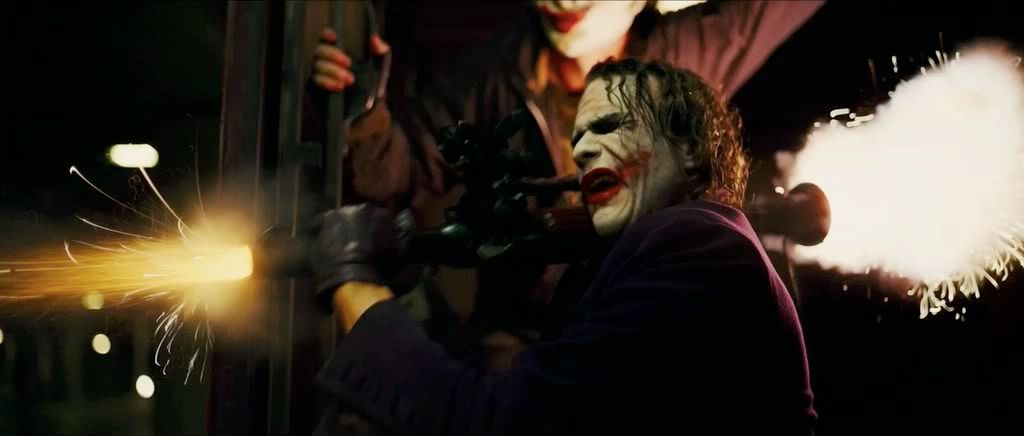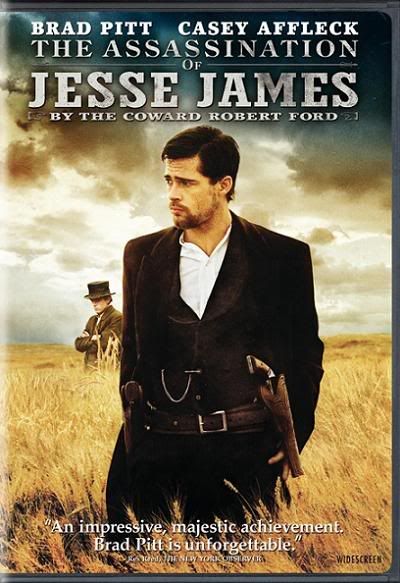Forget Nostalgia: Cinema In 2011 Took Us To Brave New Worlds

Note: Films like "Margaret," "Undefeated," "A Separation" and "Pina" will be in contention for my Best of 2012 list as a result of their significant 2012 theatrical presence.
----
There is a word you will hear a lot between now and Billy Crystal's opening monologue on Oscar night. That word: nostalgia. Oscar pundits and Hollywood-backed bloggers will continue to make the case that 2011 was a year which cried for things to "return to normal."
Yet 2011 was really quite the opposite.
In a time when news headlines were filled with the terms "SOPA" and "piracy," Tinseltown was pretty much shitting its pants for most of the year. Yes, in a sense, they're still making money at the box office (When a 3D ticket is nearly $20 a person in some cities, how could they not?) but they do feel that storm coming...the same way Michael Shannon's Curtis felt it in "Take Shelter." A new wave of cinema, both macro and micro, is upon us. On a macro level, commercial audiences are consuming their commercial fare in new ways: through Redbox pick-ups and Netflix streaming. Gone are the family trips to the New Releases sections at Blockbuster or overpriced concession stands at the multiplex. On a micro level, more indie filmmakers are finding new ways to attract audiences (if you still don't know what Transmedia is, you're a relic). They are also vigorously branding themselves online, sans an agent or agency.
The textbook relevance of the Hollywood model, the Hollywood backbone, is fading. That's why a charming, yet totally non-compelling movie like "The Artist" is the shoo-in to win the Best Picture Oscar. Eh, fuck it.
**
Mine--as usual--is a year-end "Best Of" list that celebrates the films that were audacious enough to take risks, move audiences and announce their staying power.
Like previous years, 2011 offered harmless films like "Super 8" and "50/50." More alarming were the film releases that were subpar, considering the mammoth talent behind the camera. Consider these titles--all "good" films but nowhere near the tier of greatness that these directors have put out before: "War Horse," "The Descendants," "Terri," "The Girl With The Dragon Tattoo," "The Ides of March," "Hugo," "Drive," "Melancholia," "Jane Eyre" and "We Need To Talk About Kevin." Then there were those films that seem poised for failure and yet somehow pleasantly surprised: "The Adventures of Tintin," "Rise of the Planet of the Apes," "Everything Must Go," "Real Steel," "Warrior," "X-Men: First Class" and "Bridesmaids." Finally, there were those gems that came out of nowhere like "Win Win" and "Martha Marcy May Marlene."
The problem with compiling Top Ten lists is that you can never really honor all the films that need to be sought out for year-end praise. So here go the ten films that tied for my 11th place: "Attack The Block," "Beats, Rhythms & Life: The Travels of A Tribe Called Quest," "Contagion," "Into The Abyss," "I Saw The Devil," "Marwencol" (pictured above), "Midnight in Paris," "Rango," "The Skin I Live In" and "Take Shelter."
And now, without further adieu, the Top 10 Films of 2011:

10. "Mysteries of Lisbon" Directed by Raoul Ruiz
To say that the late Raoul Ruiz was a prolific Director would be the understatement of the century. With his "Mysteries of Lisbon," a historic, continent-spanning, generational drama, Ruiz forces us to lean closer to the screen to participate in his game of pick-up clues and manipulation of dramatic devices. Perhaps his most entrancing film since 1979's "The Hypothesis of the Stolen Painting."

9. "Here" Directed by Braden King
King's wonderful--and I mean wonderful!--"Here" feels like an Antonioni road movie that was left in the editing room with Stan Brakhage and Jonas Mekas. Ben Foster stars as a cartographer and Peter Coyote steals the show as the voiceover storyteller for the video art/video installation sequences that seamlessly embed themselves in the film's straightforward narrative.

8. "Day Is Done" Directed by Thomas Imbach
"Day Is Done" is a benchmark example of what I refer to as the "new cinema." It's storytelling 2.0 on a bold scale. Imbach, both the filmmaker and screen character, simply films the landscape outside the window of his apartment and for the next two hours we are given a glimpse into an artist's inner spirit via time-lapse footage and personal answering machine messages that were compiled over several years. This film is not for everybody.

7. "The Interrupters" Directed by Steve James
The best documentary of the year, hands down. So it shouldn't come as a surprise that it WASN'T nominated for the Best Documentary Oscar. James, as he did in "Hoop Dreams," simply observes and commits to the arc of the lives of his subjects. A meditation on how violence permeates throughout a city, its inhabitants. A powerful visualization of patience, hope and resilience.

6. "The Robber" Directed by Benjamin Heisenberg
Here is the lone-criminal film that "Drive" only wished it was. Heisenberg's hypnotic drama takes the form of a ritualistic film, stringing along sequences that brush across a canvas of doomed fate for its antihero. I haven't been that moved by an ending to a crime film since Mann's "Heat."

5. "Shame" Directed by Steve McQueen
Contrary to some critics' opinions, "Shame" isn't the epitome of 'British miserablism.' Leave it to video artist McQueen to construct a visually beautiful and internally gut-wrenching masterpiece. This one is going to be around for a long time. Michael Fassbender has etched his name onto the walls of acting glory.

4. "Life In A Day" Directed by Kevin Macdonald
A crowdsourced film that played out with more spontaneity and overwhelming insight than most Hollywood screenplays in recent memory. Haters be damned; a new wave of storytelling is already here.

3. "Moneyball" Directed by Bennett Miller
The irony here is that "Moneyball" is more classic Hollywood than "The Artist." Brad Pitt delivers the kind of performance that Golden Age movie stars churned out. Pitt is in almost every scene of the movie. It's a performance that emotes handsomeness, charm and unexpected pathos. It's too bad that most people who read the synopsis of "Moneyball" won't make it past the "sports movie" label. Brad Pitt deserves the Oscar and it'll be a shame if he loses it to a guy who mimes along with his cute dog (i.e. "The Artist").

2. "Beginners" Directed by Mike Mills
"Beginners" does a miraculous job of steering clear of any cliches it sets up for itself. It deconstructs its cute dog by providing it with subtitles. It sidesteps any stock-queer-jokes once Christopher Plummer's characters comes out of the closet. The subplot involving an early romance doesn't introduce an archetypal third wheel villain or tacky slow motion scene. Maybe this is all due to Mills'--a visual artist--decision to construct his film around the nonlinear, imperfect beats of (his and our) real life.

1. "The Tree of Life" Directed by Terrence Malick
Overwhelming. Problematic. Ambitious. Polarizing. Timeless. All valid descriptions of great cinema. Kubrick's "2001: A Space Odyssey" went through similar early stages of audiences being puzzled. But look at how revered that film is today. Malick's film is positively enthralling, on all scales. From the year's best cinematography to the year's best film editing, "The Tree of Life" humbles us with its scope of life, the universe and the guilt an older brother can feel after bullying his younger brother with a BB gun air rifle. A masterpiece, no matter which way you slice it.
